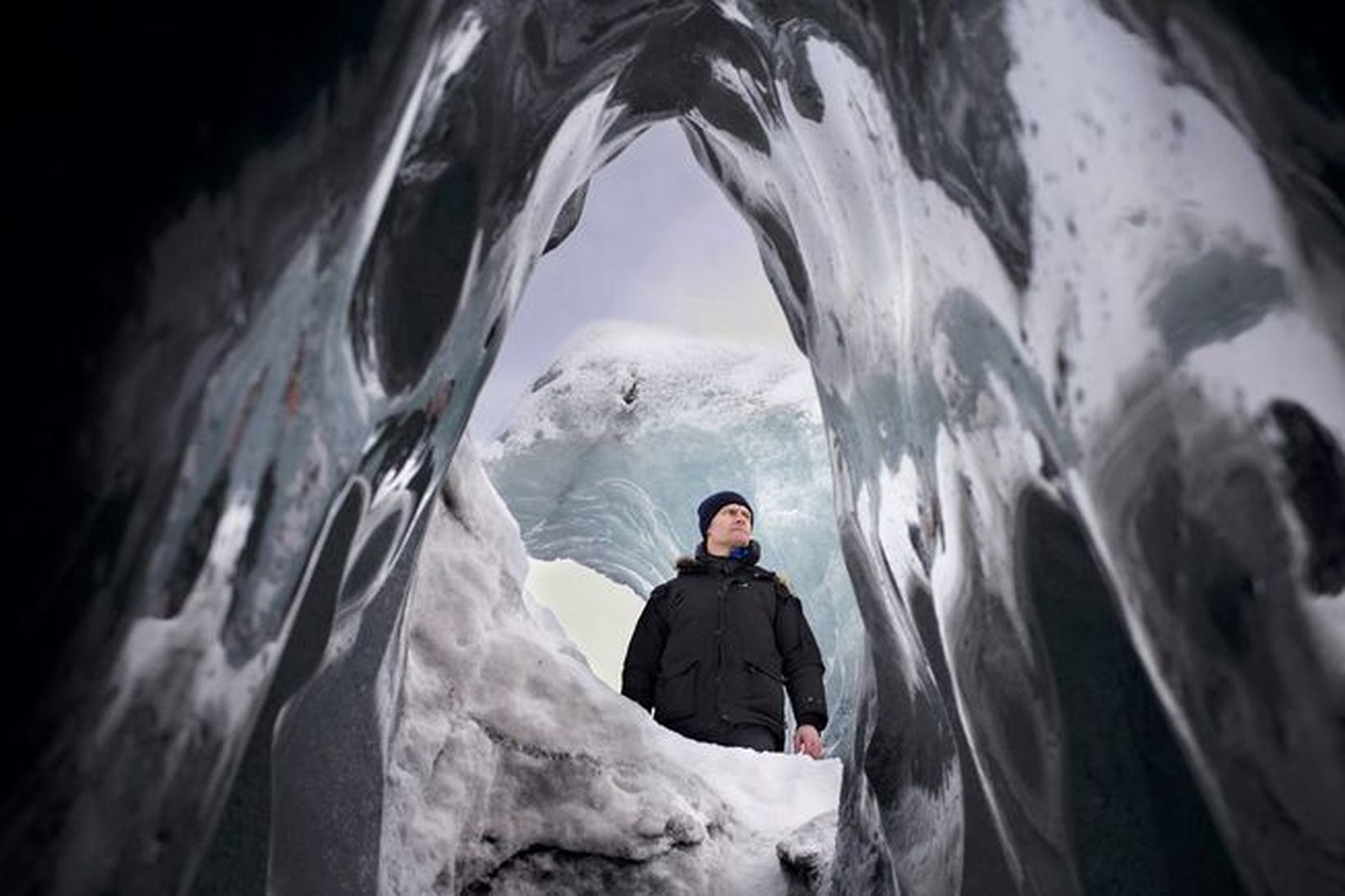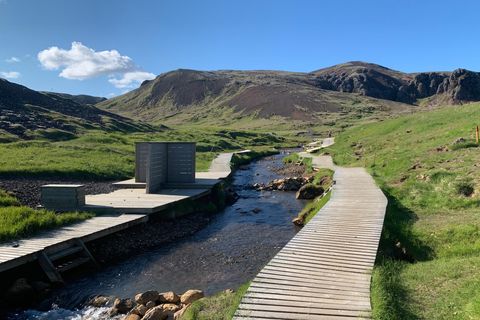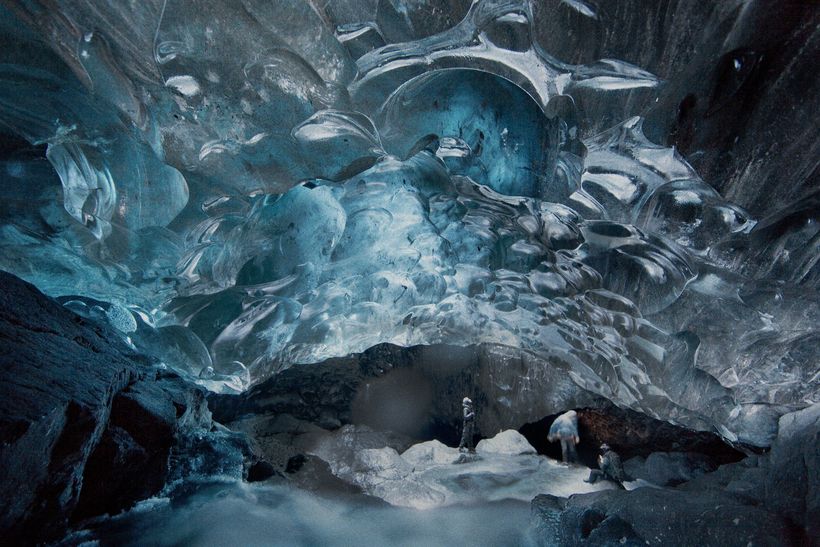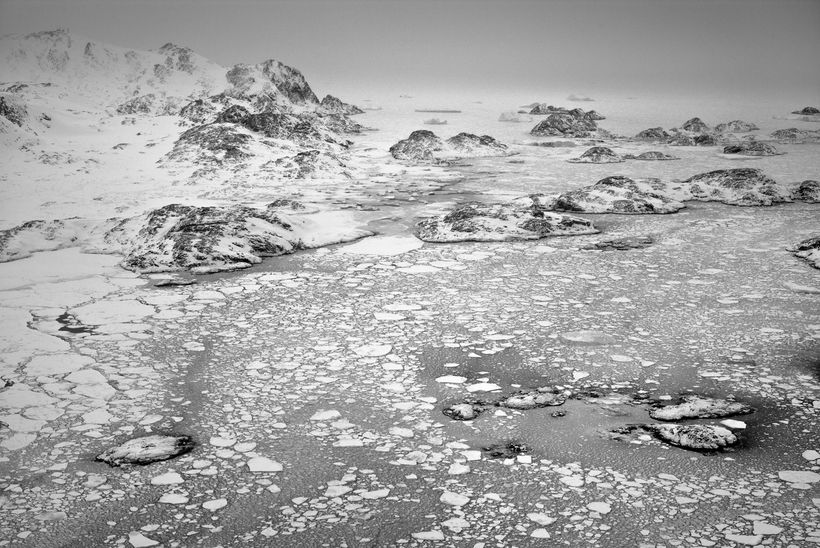Arctic 2015: Things are not looking good!
Professor Kevin Anderson urges policy makers to be honest and acknowledge the scale of the mitigation challenge and abide by the international commitments that you/we have repeatedly made to keep the rise in the average global temperature below 2°C.
By Orri Páll Ormarsson orri@mbl.is Photos: Ragnar Axelsson
“We are in ‘injury time’ for 2°C – and things are not looking good. However, time will continue regardless even if we blow the 2°C carbon budgets, we still need to drive even harder for deep and rapid mitigation alongside preparing for the regional impacts of a 4, 5 or even 6°C future. But we must note that adaptation to such a future scenario will never be sufficient for the many millions who will suffer and die as a consequence of the fossil fuelled hedonism enjoyed by relatively few of us – including me and very likely anyone reading this; we are the high emitters who have explicitly chosen not to care.“
This is the opinion of Professor Kevin Anderson, who holds a chair in Energy and Climate Change at the School of Mechanical, Aerospace and Civil Engineering at the University of Manchester. He is a scientific advisor to the Welsh Government’s climate change commission and regularly provides advice to the UK Parliament. He is the Deputy Director of the Tyndall Centre for Climate Change Research and is research active with recent publications in Nature and Royal Society Journals.
Devastating consequences
– Professor Anderson, what is your main concern regarding rapid climate change, especially in the Arctic?
“This is not my area of expertise. But in addition to the ecosystem impacts, I am concerned about the additional warming that a loss of reflective ice will lead to (i.e. from white reflective ice to dark absorbing water). This will likely have some impact on ocean circulation – but as I say this is not my area of research.“
– Some scientists are predicting warming up to 4°C in the Arctic for the rest of the century. What would that mean? Rising sea levels, melting ice etc.?
“I am surprised that the figure is so low. I understood that a 2°C rise this century was associated with a rise of approximately 6°C in the Arctic – so I am not sure where your “4 °C in next century“ is coming from.“
– So we can anticipate even more than 4°C?
“Emissions are currently on track for the higher end of the IPCC scenarios (RCP8.5); i.e. broadly heading towards a 3.5 to 6°C increase by 2100. The International Energy Agency (IEA) note that the CO2 trend is perfectly in line with a temperature increase of 6 degrees Celsius, which would have devastating consequences for the planet.“
Prolonged and more intense heat waves and droughts
– What would 2°C even mean?
“For many people living in poorer and climatically more vulnerable communities, 2 °C impacts will be hugely damaging, ranging from increased sea level rise exacerbating the damage caused by storms and typhoons, which in themselves will increase in severity and potentially frequency. At the other end of the spectrum, there will likely be prolonged and more intense heat waves and droughts. It is important to remember that we do not live with average temperatures, but rather with substantial regional variations – the impacts will therefore be very regionally specific.
I suggest looking at the summary for policy makers of the IPCC’s synthesis report (November 2014) for a more comprehensive (though inevitably conservative) account of potential 2°C impacts.“
– To what extent are humans responsible for this unprecedented climate change?
“Most of the warming experienced since the 1950s can be attributed to human emissions of greenhousegases (GHGs); virtually all of the anticipated warming estimated for the coming century is the responsibility of our GHG emissions.“
– Do you feel the discussion on human responsibility has become too political? And if so, why?
“It is innately political – and consequently it is essential that policy makers and the wider civil society are engaged in discussions around climate change. Unfortunately, to date, the voices of the high emitting and wealthy are listened to whilst those of the low emitting poor are essentially ignored; and it is the latter group who will suffer the lion’s share of the impacts in the short to medium term.“
Stop delaying meaningful action
– What is your message to policy makers?
“Be honest and acknowledge the scale of the mitigation challenge and abide by the international commitments that you/we have repeatedly made to keep the rise in the average global temperature below 2°C. Stop delaying meaningful action and also don’t just wait for a watertight international agreement. Wealthy higher emitting nations need to be leading by example – from keeping our own fossil fuel reserves in the ground through to moving investment away from developing and supporting high carbon infrastructures.“
“Wealthier nations need to be delivering mitigation rates of around 10% p.a. – starting now! This will impact significantly on the lifestyles of many within the higher emitting nations – but the impacts of not acting to reduce emissions will be far more profound and pervasive; climate change is an existential problem, and the odds are currently not looking good.“
– What is your message to ordinary citizens?
“Lend support to policy makers who are making difficult decisions and demonstrating leadership on climate change. In addition, we need to make changes to our own lives and those of our immediate family circles – identifying the areas where most of our emissions come from and taking action to reduce them – significantly. Engage with work colleagues and friends, and even consider writing to your local politicians etc.“
“Remember that policy makers need to see examples of what can be done. Ideas converted into real practical change by individuals may catalyse wider change within your local community or at your place of work, which subsequently provides an example to policy makers of what can be achieved – helping them to inform government thinking. Bottom-up and top-down need to work as a partnership – it’s not about ‘them or us’ – it’s about working together.“
Lower levels of ambition
– Do you feel there is real intent to reduce emissions?
“Yes, but at far lower levels of ambition than are necessary to hold emissions to even a slim chance of staying below a 2°C rise. The level of intent is more in line with a reasonable probability of staying below a 4°C rise.“
– How important is the question of technology in this context?
“Very important – but because we have completely failed to make any progress on reducing emissions, the remaining small and rapidly dwindling carbon budget for 2°C now requires deep and immediate reductions in energy demand (and hence emissions). This will need to continue until the transition to a low carbon energy supply is achieved.“
“However, whilst such technologies (renewables, nuclear and some biomass) will unavoidably take two decades or more to replace fossil fuels, the right policies could see a very rapid uptake of much more efficient energy demand technologies. Cars, refrigerators, computers and IT equipment, along with many other appliances, are naturally replaced every two to ten years. The most efficient appliances available, at very little price premium, typically consume 50 to 80% less energy than the average appliance sold.“
“Add this to significant behavioural change (probably driven through legislation, prices etc.) amongst the high emitting individuals – and the 2°C target is just within reach. That said, virtually nowhere is there any discussion of delivering such radical reductions in emissions through significant behaviour and technical change – hence we’re much more in line with a 4°C future than anything approaching our far less dangerous 2 °C target.“
Paris is not an endgame
– How important is the United Nations Climate Change Conference to be held in Paris later this year?
“Very important – but we should not put all our eggs in the ‘international agreement’ basket – and Paris is not an endgame. It is very likely that Paris will deliver a weak agreement wrapped in eloquent language, back slapping and fine words of unsubstantiated optimism – consequently we need to push hard in the remaining weeks to deliver as ambitious an outcome as is possible.“
“However, if a weak deal is the outcome of Paris it will be the final blow to any real chance of 2°C – but that is no reason to give up – rather, it will signal a need to redouble efforts to deliver meaningful mitigation. But we need to be honest – a weak agreement will see us having failed our own children and the poor and vulnerable around the globe today.“
“We will have done this knowingly and we will have had plenty of chances to act differently. We will have lacked the courage, integrity and compassion to comply with our repeated commitments. Post Paris, we would need to recognise our failure, bow our heads in shame and take a short time for some reflection before starting anew, but this time with conviction and honesty.“
– Even though we get a favourable outcome in Paris there is still plenty of work to be done, correct?
“Yes – as above. As it is, we are simply not prepared to acknowledge the quantitative and qualitative implications of our own science. If we are to make any real progress, we need to overcome the domination of short-term finance masquerading as economics. We need to remind ourselves that finance and economics are tools to help develop a better society; and not the other way around!“
“The physical and social sciences, engineering and the humanities offer most of the insights and tools necessary to understand and address issues of climate change. Economics is just one lens through which to view such challenges – and thus far it has been used to undermine rather than support meaningful action on climate change.“
Much of Kevin Anderson’s work is available at http://kevinanderson.info and he has an active (climate-only) twitter account @KevinClimate.






/frimg/1/48/46/1484606.jpg) Baldur, Katrín og Jón taka forystu
Baldur, Katrín og Jón taka forystu
 Trump mætir fyrir dóm í fyrsta sakamálinu
Trump mætir fyrir dóm í fyrsta sakamálinu
 Forsetafylgismenn dregnir í dilka
Forsetafylgismenn dregnir í dilka
 50% fjölgun kærumála og aukið álag
50% fjölgun kærumála og aukið álag
 Ekki orðinn þreyttur á vöfflukaffi
Ekki orðinn þreyttur á vöfflukaffi
 „Ef það er einhver einn lærdómur...“
„Ef það er einhver einn lærdómur...“
 „Ég læt ekki skoðanakannanir ráða för“
„Ég læt ekki skoðanakannanir ráða för“
 Byggingarheimildir verði tímabundnar
Byggingarheimildir verði tímabundnar